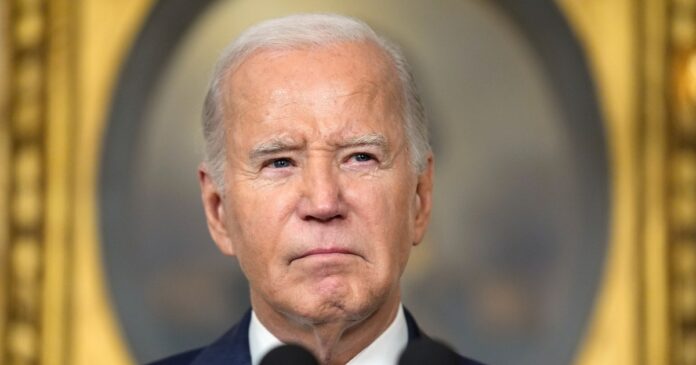Despite mounting pressure for United States President Joe Biden to withdraw from November’s election due to concerns about his age and fitness, he was already losing support over his handling of the economy.
Even though the US economy was strong under his leadership, Biden struggled to convince voters that they were better off during his tenure. In May, just 23 percent of Americans surveyed by the Pew Research Center viewed the economy as “excellent or good” before a disastrous debate performance against Donald Trump solidified perceptions of Biden’s decline.
Most Americans rated the economy as “only fair” or “poor,” with dissatisfaction coming from Biden’s own voter base as well. The proportion of Democrats and Democratic-leaning voters who viewed the economy positively declined from 44 percent in January to 37 percent in May.
Furthermore, US voters consistently viewed his Republican rival, Donald Trump, as more trustworthy on the economy, a perception that persisted after a debate on June 27. In a recent Pew poll, 34 percent were very confident about Trump making good decisions regarding economic policy, compared to 17 percent for Biden.
Biden’s overall approval ratings closely reflected his poor ranking on the economy. His approval remained below 40 percent for most of the year, with polls from the FiveThirtyEight website showing this trend. He also trailed behind Trump as the preferred choice for the next US president.
While Biden could point to a strong economic record by many measures, including the fastest growth among major advanced economies and the creation of 15.7 million jobs, he was also blamed for the highest inflation since the early 1980s. Inflation remained a top concern for Americans, with nearly 62 percent still considering it a significant problem in May.
Although inflation has decreased from its peak in June 2022, hovering around 3 percent, it remains above the US Federal Reserve’s 2 percent target. Consumers are still paying considerably more compared to a few years ago, with prices rising over 19 percent since Biden took office.

Concerningly, 65 percent of adults surveyed by the Federal Reserve last year reported negative impacts on their financial situation due to price changes, despite 72 percent stating they were “doing at least okay financially.” Prices had only risen about 5 percent at a similar point in Trump’s presidency, leading more Americans to feel better off during his term.
While Biden couldn’t control COVID-related supply chain disruptions that drove much of the inflation spike, most Americans attributed inflation to government policies according to a National Bureau of Economic Research study. Higher inflation was viewed negatively by the public, despite its indication of economic growth, with a belief that managing inflation could be achieved without significant trade-offs.
Although wages are growing faster than inflation again after falling behind during the pandemic, they have yet to catch up with the start of Biden’s presidency in real terms. The challenge for Biden lay in trying to sell a positive economic message, acknowledging the pain of higher prices and addressing its impact.
Heather Long, a columnist for The Washington Post, highlighted this economic lesson, stressing that Americans strongly oppose inflation.




